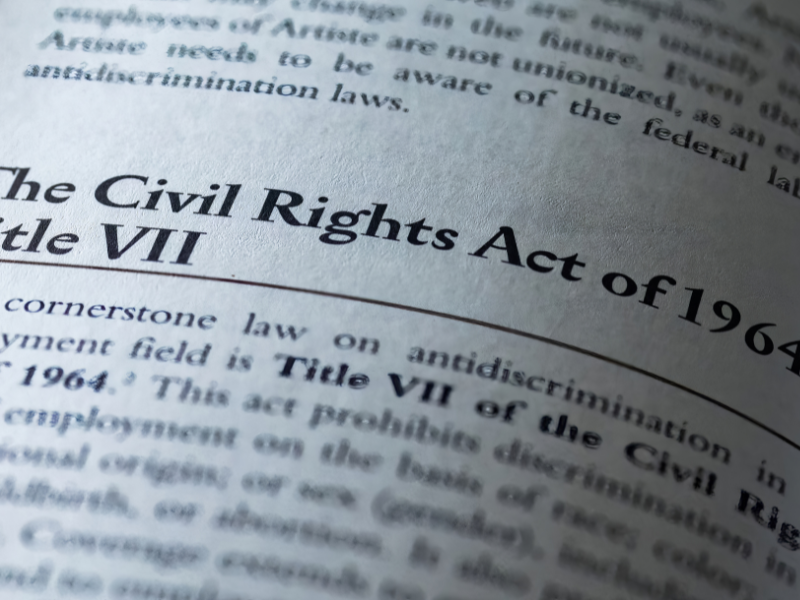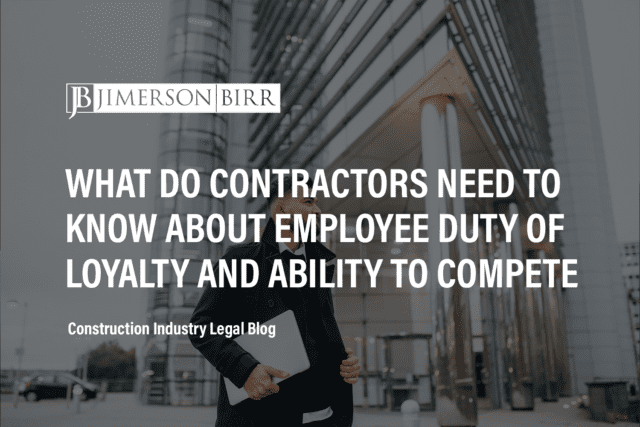How does Title VII affect businesses?
Title VII is a cornerstone of employment law that significantly influences the operations of Florida-based businesses and shapes their approach to employment practices. This landmark legislation prohibits discrimination based on race, color, religion, sex, or national origin in various aspects of employment, including hiring, promotion, compensation, and termination.
Businesses operating in Florida must navigate the complexities of Title VII compliance to ensure equal treatment of employees and avoid costly litigation. Non-compliance can result in severe legal consequences, including lawsuits, monetary damages, and reputational harm.
Conversely, effective Title VII compliance measures can enhance workplace diversity, foster a culture of inclusivity, and promote employee morale and productivity. By implementing comprehensive training programs and anti-discrimination policies, businesses can proactively address potential legal risks and create a more equitable work environment.
Do you need help with Title VII compliance, training, or litigation? Schedule your consultation today with a top employment law attorney.
Which laws and regulations relate to Title VII compliance, training, or litigation in Florida?
Several laws and regulations in Florida intersect with Title VII compliance, training, or litigation in employment law matters. One crucial statute is the Florida Civil Rights Act (FCRA), which parallels Title VII’s protections against discrimination but extends coverage to additional categories such as age and disability.
Moreover, Florida businesses must adhere to federal regulations enforced by the Equal Employment Opportunity Commission (EEOC), which oversees Title VII enforcement and investigates workplace discrimination complaints. Understanding the interplay between federal and state laws is essential for ensuring comprehensive compliance and minimizing legal risks.
What are common issues regarding Title VII non-compliance that lead to litigation?
The following issues are among the most common in actions regarding Title VII non-compliance:
- Discriminatory Hiring Practices: Failure to ensure fair and unbiased hiring processes, such as discriminatory job advertisements or biased interview questions, can lead to allegations of discrimination under Title VII.
- Hostile Work Environment: Creating or allowing a hostile work environment where employees are subjected to harassment based on protected characteristics like race, gender, or religion can result in litigation under Title VII.
- Unequal Pay: Pay disparities based on gender, race, or other protected characteristics may trigger Title VII lawsuits, especially if employers cannot justify the wage differences with legitimate factors such as seniority or performance.
- Retaliation: Retaliating against employees who file complaints or participate in investigations related to Title VII violations is illegal and can lead to litigation, even if the original complaint is unsubstantiated.
- Failure to Accommodate: Employers must provide reasonable accommodations for employees’ religious beliefs, disabilities, or other protected characteristics. Failure to do so can result in claims of discrimination under Title VII.
- Inadequate Training: Lack of effective training on Title VII compliance for managers and employees can increase the risk of unintentional violations and subsequent litigation.
We are value-based attorneys at Jimerson Birr, which means we look at each action with our clients from the point of view of costs and benefits while reducing liability. Then, based on our client’s objectives, we chart a path forward to seek appropriate remedies.
To determine whether your unique situation may necessitate litigation, please contact our office to set up your initial consultation.
What steps should an employer take to minimize the risk of litigation over Title VII compliance and training?
- Develop Comprehensive Policies: Establish clear policies prohibiting discrimination, harassment, and retaliation, and ensure all employees receive training on these policies regularly.
- Implement Fair Hiring Practices: Standardize hiring processes to eliminate bias and evaluate all candidates based on their qualifications and merits.
- Promptly Address Complaints: Respond promptly and thoroughly to complaints of discrimination or harassment, conducting impartial investigations and taking appropriate disciplinary action when necessary.
- Provide Regular Training: Offer regular training sessions on Title VII compliance for managers and employees, emphasizing the importance of maintaining a respectful workplace.
- Seek Proactive Legal Guidance: Consult with employment law attorneys to review policies, procedures, and practices periodically to ensure compliance with Title VII and other relevant laws and regulations.
Frequently Asked Questions
Can an employer be held liable for harassment by a non-employee?
Yes, if the employer knew or should have known about the harassment and failed to take prompt and appropriate corrective action.
Are religious organizations exempt from Title VII?
Title VII exempts religious organizations from certain employment discrimination provisions when hiring employees of a particular religion to perform religious duties.
What remedies are available to successful Title VII plaintiffs?
Remedies may include reinstatement, back pay, compensatory damages for emotional distress, punitive damages (in cases of intentional discrimination), and attorney’s fees and costs.
Have more questions about a Title VII compliance, training, or litigation-related situation?
Crucially, this overview of Title VII compliance, training, and litigation does not begin to cover all the laws implicated by this issue or the factors that may compel the application of such laws. Every case is unique, and the laws can produce different outcomes depending on the individual circumstances.
Jimerson Birr attorneys guide our clients to help make informed decisions while ensuring their rights are respected and protected. Our lawyers are highly trained and experienced in the nuances of the law, so they can accurately interpret statutes and case law and holistically prepare individuals or companies for their legal endeavors. Through this intense personal investment and advocacy, our lawyers will help resolve the issue’s complicated legal problems efficiently and effectively.
Having a Jimerson Birr attorney on your side means securing a team of seasoned, multi-dimensional, cross-functional legal professionals. Whether it is a transaction, an operational issue, a regulatory challenge, or a contested legal predicament that may require court intervention, we remain a tireless advocate every step of the way. Being a value-added law firm means putting the client at the forefront of everything we do. We use our experience to help our clients navigate even the most complex problems and come out the other side triumphant.
If you want to understand your case, the merits of your claim or defense, potential monetary awards, or the amount of exposure you face, you should speak with a qualified Jimerson Birr lawyer. Our experienced team of attorneys is here to help. Call Jimerson Birr at (904) 389-0050 or use the contact form to set up a consultation.
Here are some blogs written by JB attorneys that provide more information about employment law:
- Independent Contractor or Employee: Know the Difference
- Rescinding Job Offers in At-Will Employments in Florida
- Tips for Drafting Employee Handbooks in Florida
- Understanding the Process for Employee Sexual Harassment Claims
- Contesting OSHA Violations and OSHA Citations: A Guide To OSHA Employer Rights
- What Do Contractors Need to Know About Employee Duty of Loyalty and Ability to Compete


We live by our 7 Superior Service Commitments
- Conferring Client-Defined Value
- Efficient and Cost-Effective
- Accessibility
- Delivering an Experience While Delivering Results
- Meaningful and Enduring Partnership
- Exceptional Communication Based Upon Listening
- Accountability to Goals











